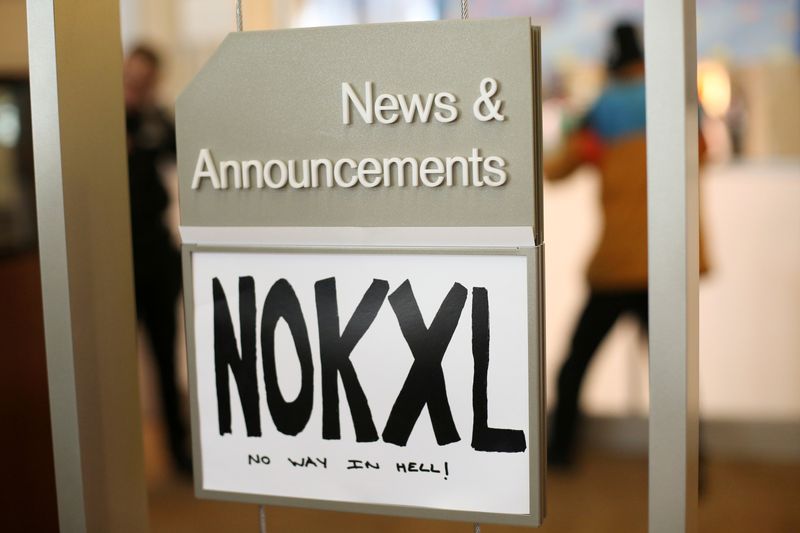This post was originally published on this site
https://i-invdn-com.akamaized.net/trkd-images/LYNXMPEGAH1P1_L.jpg
WINNIPEG, Manitoba (Reuters) – TC Energy (NYSE:TRP) Corp says it is continuing to advance its Keystone XL (KXL) oil pipeline, the $9 billion project that would move oil from the province of Alberta to Nebraska.
Most recently, a Canadian indigenous group said it would invest C$1 billion ($764.35 million) in the project, which has been in the works for 12 years.
That surprised some, as KXL has been slowed by legal issues in the United States, and faces a potential fatal blow next year when President-elect Joseph Biden takes office, if he follows through on a vow to scrap KXL’s presidential permit.
WHY HAS THIS PROJECT BEEN DELAYED SO LONG?
Keystone XL was an early target in a strategy by environmentalists to choke the expansion of Canada’s oil sands by opposing new pipelines to move its crude to refineries. Former U.S. President Barack Obama, a Democrat, axed the project in 2015, saying Canada would reap most of the economic benefits while the project would add to greenhouse gas emissions. President Donald Trump, a Republican, issued a presidential permit in 2017 that allowed the line to move forward, and several environmental groups sued the U.S. government.
IS THIS PIPELINE STILL NECESSARY?
This is debateable. Work to increase capacity of two other Canadian export pipelines, the government-owned Trans Mountain and Enbridge (NYSE:ENB)’s Line 3, is proceeding with fewer remaining hurdles than KXL. Some analysts say these projects will provide enough capacity for the foreseeable future, now that analysts and major industry groups, including OPEC, expect that global oil demand will peak sooner than was previously anticipated.
Alberta Premier Jason Kenney has said the project is important because he is not certain that Trans Mountain will proceed.
WHAT IS THE STATE OF CONSTRUCTION?
Construction is well under way in Canada. The international border crossing is complete. In the United States, TC has started construction on pump stations in each of the states the line will pass through, but legal setbacks cost it much of the 2020 construction season.
The U.S. Supreme Court upheld an injunction on KXL construction in July, leaving a ruling in place that blocks TC’s use of a federal permit that allows dredging work on pipelines across water bodies.
TC continues to plan for a 2023 in-service date.
WHAT HAPPENS IF BIDEN REVOKES KXL’S PERMIT?
TC requires the permit to build and operate KXL.
Given the permit’s importance, TC, the Canadian and Alberta governments are trying to convince Biden to allow the project. TC is looking for further equity investments from U.S. indigenous groups and has awarded construction work to four U.S. unions, hoping to make the project more politically palatable.
TC is also framing KXL as a jobs-creating project that could bolster Biden’s Build Back Better economic plan.
If Biden revokes KXL’s permit, it would be a blow to TC’s growth plans, give Canadian oil shippers fewer future options and likely divert more volumes to competitor Enbridge’s Mainline.
WHO OWNS KEYSTONE XL?
TC is still the major investor, but it has now sold significant minority stakes to both the Alberta government, and to Natural Law Energy (NLE). NLE is a coalition of five First Nations in Alberta and Saskatchewan, whose traditional lands KXL crosses.
NLE’s investment is expected to close in the third quarter, 2021, subject to financing, by which time it should be clear what position Biden will take.
($1 = 1.3083 Canadian dollars)

